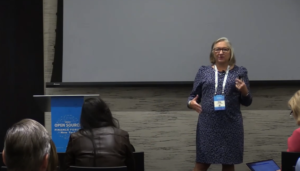By Paula Hunter, executive director of the Mojaloop Foundation

Financial inclusion is entering a renaissance. Thanks to digital public goods like Mojaloop, it’s more possible than ever before to make digital payments and other financial services accessible to the 1.4 billion unbanked people in developing countries, most of whom have phones.
Since COVID-19, more than 100 countries have made digital government-to-person (G2P) payments possible. But there’s more work to be done to build the financial ecosystem in developing countries, to ensure financial systems are interoperable, and to dramatically reduce or eliminate transaction fees. Once we achieve these goals, the $10 trillion-dollar informal economy could have a direct pathway into the greater digital financial sector.
On December 8, I was pleased to talk about digital public goods (DPGs) to the audience at the Open Source in Finance Forum in New York City. Entitled “How Digital Public Goods are Bringing the $10 Trillion Informal Economy into the Digital Payments Loop,” my presentation stimulated a great discussion with the audience, although I had to adapt to working without my slides! I’ve included a few highlights below, but you can see the overview in my slide deck or watch my presentation.
The Basics of Digital Public Goods (DPGs)
Here are the essentials:
- DPGs share three fundamental characteristics: they are non-rivalrous, non-excludable (everyone can participate and everyone can take advantage of the result) and globally available.
- They are a recharacterization of open-source software because governments in developing economies want to know that the intent is to create something that benefits the public.
- They differ from open source projects in that they allow philanthropic organizations to grant funds, which are needed for operations, the full development spectrum, and deployment.
- They give countries sovereignty over their projects and help them avoid vendor lock-in.
- Because they incorporate open source code, they can be independently reviewed. This transparency provides the accountability and compliance financial service providers and regulators need.
- They can dramatically lower costs and risks to countries and institutions, which in turn allows them to offer services for lower fees, leading to greater financial inclusion.
To get the full picture, I encourage you to view the slide deck.
Mojaloop: One Loop for All
Mojaloop supports hub operators to deliver instant interoperable payment systems that benefit everyone in the ecosystem: fintechs, central banks, governments, merchants and individual users. Our community has over 1,400 participants in 47 countries on six continents — and it’s still growing.
Development teams can download Mojaloop from GitHub and get started in less than an hour. If questions come up, we’ve got a Slack channel where you can get help. We’re happy to help organizations of all kinds learn how to use our software and to help create better financial inclusion for everyone regardless of where they live or their economic status.

